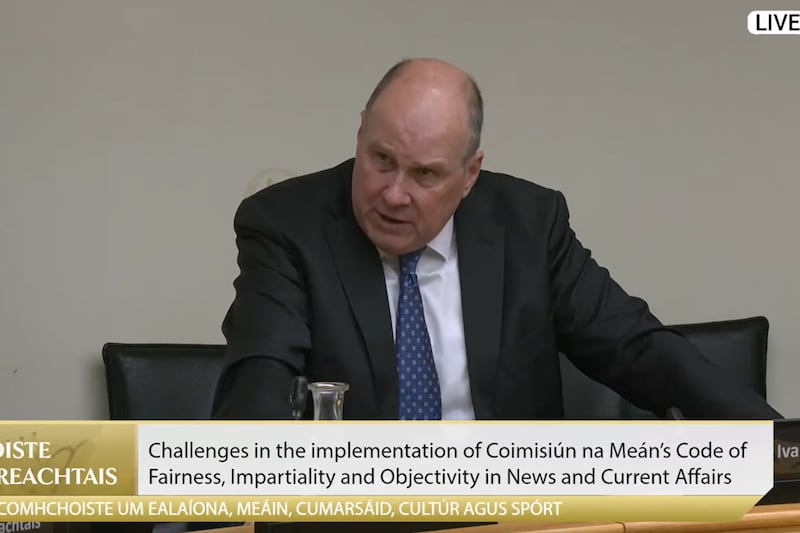Back in the Ireland squad after a lengthy absence, David McGoldrick denies that there was ever a serious falling out with Mick McCarthy’s predecessor, Martin O’Neill, and insists he simply needed “a kick up the backside” after losing his way at club level.
There was, he acknowledges, an exchange with the then manager after he had been overlooked for the game against Moldova in October 2017 but it was pretty routine stuff, he maintains; the sort of stuff that gets said at grounds everywhere week in week out. “We had a discussion about it,” he says, “but there was no bad blood.”
"It was pretty straightforward," continues the 31 year-old, who last featured in an Ireland shirt against Mexico in New Jersey the best part of two years ago: "My form at Ipswich over the last two years . . . I had a lot of injuries and wasn't the player I was when I first came into the squad (more than four years ago). Strikers have come in and scored; Aiden O'Brien, Sean Maguire, we've still got [Shane] Longy. I wasn't getting selected for these reasons, which I accepted and it has driven me on to Sheffield United where I think I found myself again."
“Bomb squad”
He needed to, he realised, after McCarthy's replacement at Ipswich, Paul Hurst, declined to give him a new contract and his alternatives weren't nearly as numerous or attractive as he had initially expected. Through a connection at the club, he ended up training to stay fit with the "bomb squad" at Nottingham Forest, a group of players then manager Aitor Karanka had deemed surplus to requirements and he was beginning to sense that this might be a major turning point in his career when Sheffield United suddenly came calling.
He had, he reflects now, probably started to coast at Ipswich where a string of injuries also undermined his earlier status as an absolutely key player. “Yeah, I believe so,” says the striker who was helped to address injury problems by Bill Knowles, the American “reconditioning” coach who has worked with world class athletes from across a range of sports.

“I don’t think you realise it until you’re in that sort of situation. I maybe got a bit too comfortable although I loved my time there. But we were mid-table every week and there were no big expectations to go out there and win every game, like there is at Sheffield United at the moment.
“I couldn’t get fit”
“I had been the main man at Ipswich and they were always banking on me being out there which takes a lot (out of you) and I was playing with injuries when I shouldn’t have because I couldn’t get fit. First your form goes, then your confidence.
“Then, in the summer, when I was out of contract for the first time, not as many teams as I thought wanted me. I had never been in that situation. It was a kick up the back side. Clubs worried about my injuries, clubs worried about my form and when you get over 30 [years old] managers and chairman are not really too keen on chucking out contracts these days. That has all driven me on at Sheffield United (where his performances quickly brought an extra two years to the initial 12-month deal he had agreed) and I’m delighted with the way the season has gone for me.”
Given all that was going on, he insists, he can hardly blame O’Neill for looking elsewhere. And while Ireland struggled for goals last year, he admits that he cannot have looked that great an alternative.
“It was frustrating but I’m a humble lad: I’m not a recognised international striker. I haven’t scored goals like Robbie Keane so I can’t stamp down the door, really, and say ‘I should be playing’. Club level is different to international level. But I was watching the boys and my aim was to get back into squad. I’ve done that now and my aim is to score goals for my country.”


















